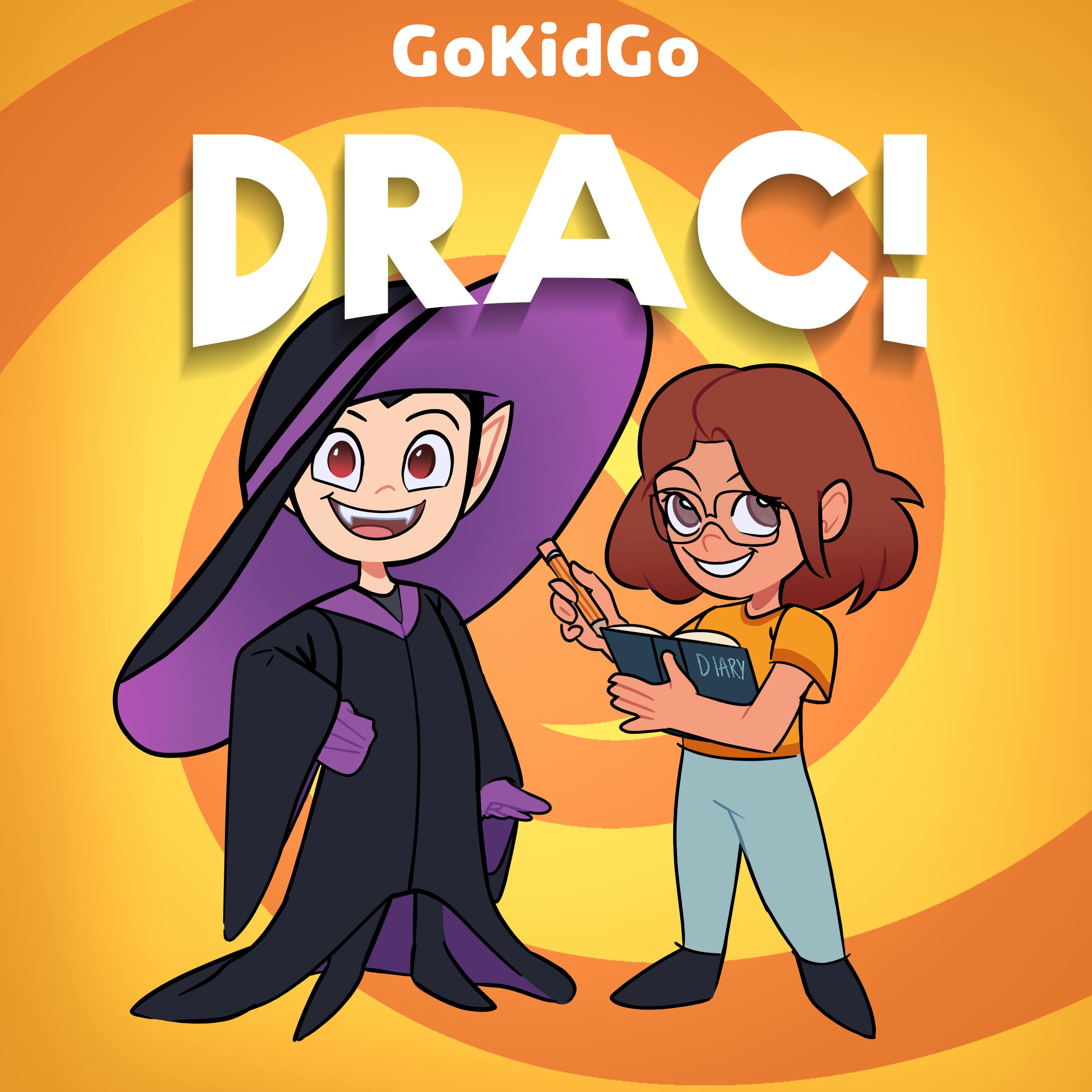
T&N's Podcast for Kids
TJ (9) and Nolan (7) decided it would be a blast to start their own family-friendly podcast. The dynamic duo plans to include stories ranging from light-hearted stories to slightly spooky ones and some interesting interviews in between! Check it out and let us know what you think!
T&N's Podcast for Kids
Face to Face with Police Chief Chris Skinner
TJ and Nolan interview Police Chief Skinner, meet a detective and a sergeant, and tour the Eugene Police Department in Oregon. They were sure to ask the tough questions - including what his favorite donut is and if his department gets along with the FBI. Enjoy this fun and educational episode!
Send us a comment, idea for a next story, or request your names to be used in one of our next episodes by contacting us at T&N's Podcast for Kids. Please also remember to like and follow us on Facebook, Instagram, Spotify and various other platforms. Thanks for listening!
Tell your friends and listen in. Open up your mind and let's begin. TNN's podcast welcomes you in. TNN, TNN. TJ and Nolan will fill you in. They got the stories to reel you in. TNN's podcast will make you grin.
TJ/Nolan:Welcome to TNN's podcast for kids. This is TJ and Nolan. Today we have a story for you. This is TJ. This is Nolan. We're here with Police Chief Chris Skinner. And we're going to ask him some questions. Thank you for being on our podcast.
Chief Skinner:It's going to be the highlight of my morning, trust me, being on your guys' podcast. It's an honor to be on your podcast.
TJ/Nolan:All right. How long have you been a police chief?
Chief Skinner:That's a good question. I've been doing police work for 35 years. Can you believe it's been 35 years? I don't look that old, do I, TJ? Okay, thank you for that. I've been a police chief both in Washington State and here in Eugene for a little, about 15 years. So I've been the police chief here in Eugene for over seven years now. And before that, I was up in Washington State as a police chief. So I've been doing this for a little while.
TJ/Nolan:I forgot the questions. It's like my first question and I forgot about it. When did you want to become a policeman?
Chief Skinner:An officer? Well, I was in college and which was a lifetime ago. And I didn't know what I wanted to do when I went to college. I grew up in Washington State and actually came down to Western Oregon University, which is in Monmouth, Oregon. It's just up by Corvallis to play football there. So I played football in college, which is what I really wanted to do is play sports in college. I didn't know what I wanted to do with my life. But when I was there, one of the areas of study that they had was law enforcement, which is what we do as police officers is we enforce the law and so when i started studying that and i found out that when I was done doing sports i could be a part of a team like a police department with a bunch of men and women that were all trying to do the same thing and had the same goals and the same focus that was something that really appealed to me so i got my degree in law enforcement and then I got a job right out of college and I've been working ever since
TJ/Nolan:So like, what do you have to do as a police officer.
Chief Skinner:Well, a lot of things. I mean, we ask our police officers to do a lot of different things. And I think one of the things that's always interesting to me is like, how much TV do you guys watch? You guys watch a lot of TV or you see shows on TV or movies about police officers. And one of the things that's interesting is that the stuff that you see on TV sometimes isn't exactly the way it happens in real life. I know. Yeah, it's, you know, Hollywood and the movies. I can't believe it. We'll be right back.
TJ/Nolan:Have you ever had to chase anybody? Has anyone ever escaped?
Chief Skinner:escape before? to put in the effort to try and find you again. And it's nice to know that very rarely, if ever, once you escape, you never stay escaped. We always catch you and we hold people accountable for that behavior. But every once in a while, somebody crafty will think of a way to get away from us and then we have to chase them.
TJ/Nolan:Do you know how they would have escaped? That's crazy.
Chief Skinner:It is crazy, isn't it? Because you think about being in handcuffs and you think about being in the back of a patrol car. I've had people that have been handcuffed like behind their back. So imagine your hands being handcuffed behind your back. And they're running down the street trying to get away from us with their hands behind their back. Now try to run with your hands stuck behind your back. That's crazy. It is crazy. And we'll chase them down and we'll try to make sure that they don't fall flat on their face when we We do. But you would probably be amazed at the way people try to get away from us, even with handcuffs on. I've had people try to kick out the windows of the back of the patrol car that they've been in to get away. There's been all sorts of crazy things that have happened in our life.
TJ/Nolan:Have you ever had like to tase somebody?
Chief Skinner:Well, you have to understand as the police chief, I don't do a lot of real police work anymore. But yeah, so, but every single one of our officers carry a taser. and the taser is a tool that we use so that we have an option other than really really injuring somebody we have those options to be able to use if under the right circumstances we can use those options without having to really hurt them now the taser hurts i mean it's a little bit painful but it does injure people so we tase people um unfortunately every month there's probably tasers that are being used for people that are choosing not to follow our instructions that we're trying to to take into custody. You know, every single one of those, whether it's the taser or a video that you've seen where a police officer takes somebody to the ground, every single one of those is called a use of force. And every time we do that, we have to write a report and we have to show why we did it. And we have to show that we had justification to do it. We have to render first aid care afterwards if needed. So there's lots of rules in place with police officers when they use force on people, whether it's the video you see. No. of them slamming somebody to the ground or a taser that's used. Nolan, you're awfully quiet over there. Did you have a question?
TJ/Nolan:Yeah. Okay. Maybe it's not a question, but one of our cousins wants to be a police officer.
Chief Skinner:One of your cousins wants to be a police officer?
TJ/Nolan:He's about to be a police officer, actually.
Chief Skinner:Oh, he is. He
TJ/Nolan:is. He just doesn't want to do jujitsu training. We do jujitsu.
Chief Skinner:Yeah, well, we don't do, I mean, we don't do specifically jujitsu training. What we do is we teach people how to defend themselves if you go to the ground. Because when you get into a... And when you get into a fight with a police officer, oftentimes, just like in normal life, I mean, if you think about If you think about either videos you've seen or maybe at school where people are having a conflict or fighting, almost all the time they go to the ground. It looks like a wrestling match more than a fight. It always goes to the ground. And so what we do is we teach our police officers how to be safe in the event that they have to go to the ground or they're on the ground kind of rolling around with a bad guy. We teach them how to be safe. Now, jiu-jitsu helps with that, but we don't specifically make them take jiu-jitsu training. So...
TJ/Nolan:Are there any youth programs?
Chief Skinner:So if I think I heard this right, you've got a cousin that's in Alabama. And he is probably or he or she, I'm not sure which one it is, but they're probably in the what we call a cadet program or explorer program. Depending on who you are, some are called cadet. Ours is called cadets. Other people are called explorers. When I worked for the sheriff's office, they were explorers. And the police department here, they're cadets. And that is a youth program. I believe it starts at 15 years old and it goes all the way up to 21, where they get to be a part of the organization and get trained and they get to do all sorts of things with the full-time officers. And it really, really helps them determine whether or not this is a career that they want to do, if they enjoy the job. And then hopefully when they're, whether they decide to go into the military, go to college or just work, whenever they're ready to be police officers, they have all that experience that that they get to share with us and it helps them be successful. And so we love that. We hire a lot of our cadets. We have many police officers that started out as cadets here at the Eugene Police Department. So that's a lot of fun when you see them grow up from kids all the way through being adults and being a part of the team as a police officer.
TJ/Nolan:I had a question I was waiting to ask, but has anybody tried to hack your computer system?
Chief Skinner:Well, our system is tied to the city of Eugene system. And so that cybersecurity is really important to us because we have some really sensitive information in our system. If you think about all the people that we come in contact with, we have their names and their dates of birth and their social security numbers. We have all that information if they've been arrested and what they've been arrested for and all that information. And so we make sure and the city makes sure that we have a really good security on our data so that people can't hack us now people probably try but usually the city does a really good job of recognizing that somebody's trying to hack us and protecting our data because we would we wouldn't want that data to get out so all of that stuff is are things that we are that we're paying attention to
TJ/Nolan:what are these things for
Chief Skinner:chief What's that thing for? So what you're showing me is a visitor badge. And so again, think about where we're at right now. We're in a police department, right? And what are the kind of things that are in a police department besides its police officers? We have police canines running around. We have, yeah, there's dogs downstairs probably. They might be on patrol, but they could be downstairs. There's guns, there's tools, there's sensitive information on people's computers. And so what we do is we make sure that Everybody that comes to visit us signs in and we give them a visitor badge. So if somebody sees you walking the hallway and they see your visitor badge on, they know that you're meant to be here. If we see somebody walking the hallway that either isn't an employee or doesn't have a visitor's badge, then we stop them and say, are you supposed to be in here? Have you checked in at the front desk? Remember you guys just checked in at the front desk downstairs, right? And so it is a secure facility. And so this is a security measure. And that's why you have to wear the visitor's badge. I know they're not very cool But at least when you're rolling through the hallways, checking things out, everybody will know that you're supposed to be here.
TJ/Nolan:Is there a third floor?
Chief Skinner:Is there a third floor? No, just while there's a basement and then the first floor and the second floor. You're on the top floor. And so on the top floor is where most of our detectives are. and administration so the chief's office you're sitting in the chief's office now or that chief's area now and we have detectives and they investigate property crimes and person crimes and they're across the hall and then downstairs on the main level is where all the patrol officers are street crimes and the traffic unit with the motorcycles patrol that's where the canines are all of those all of those things are on the first floor And so we kind of have different offices in different parts of the buildings, depending on what you're doing.
TJ/Nolan:What's like the second, like what's like the second compared to you, like the second best of like officers?
Chief Skinner:Compared to me? So I think if you're asking me, so the chief is the very top, right? That very top of the pyramid. And then right below me is what we call the deputy chief. And his name is Sean Adams. And so he is my right hand guy. And he helps me run It's a sergeant. A sergeant is a rank in the organization. They're kind of like a first-line supervisor. They're kind of like a first-line supervisor. So they're out on the field with the officers. They're doing the work with the officers, trying to help them do their work, answering questions, helping to supervise them. So they're kind of the first level of supervision for our police officers that are out in the field.
TJ/Nolan:What do they wear?
Chief Skinner:They wear the exact same uniform that a police officer wears. So other than the fact that on their sleeve, you'll see three stripes. So if we walk downstairs and you saw a police officer and on their sleeve right here on their arm, there's three stripes that are kind of, we call them chevrons, but they're kind of a reverse V. So three of them. So they're like an upside down V and they go up this way and there's three of them. That means you're a sergeant. And so if you ever see that you could just say hi sergeant and they would they would respond to you and you that'd be super cool that you knew that you want to see one of the detectives though yeah maybe when we're done with this you want to walk over there and just kind of walk through the detective area you can kind of see what the detectives are doing yeah yeah they're you know they do a lot of really good work but they look they would dress in clothes just like we do Because they do a lot of investigative work. They write lots of reports. They talk to lots of victims and lots of witnesses and lots of suspects. But they do really, really important work. They do the higher level investigative work. When you think about homicides and robberies and burglaries, they do all of that investigative work.
TJ/Nolan:You guys like... FBI and CIA don't like each other, but do you guys like FBI?
Chief Skinner:FBI or CIA? Yeah, we work more closely with the FBI. The CIA does their things all over the world, and so we don't deal with the CIA much. But the FBI has an office here in town, and we do some really important work with that. And one of the most important things we do with the FBI is our work around the exploitation of children. We do a lot of work making sure that people aren't exploited.
TJ/Nolan:That's cool. Yeah. I see the video of when, like, FBI, they say, open up and...
Chief Skinner:Yeah, yeah, well usually when you see that and again remember we talked a little bit in the earlier times about sometimes what we see in the movies and our videos isn't always true you know sometimes we do we do make sure the door flies open um but that's usually after we have a search warrant for something and people
TJ/Nolan:funny video
Chief Skinner:yeah there was sometimes those are funny when you when you see those but every once in a while we have to force the door open but a lot of times we're able to do we're able to go in in into areas that we need to go into without having to It's boring. Police chief's being a boring job, honestly. There's times where I wish that I would have just stayed what I was doing, which was chasing bad guys, but... Running a police department is important because you think about all the men and women that are serving this community. Having a police chief is important in the sense that I set policy and direction for the police department. I make sure that we're being held accountable for doing the right things. And when we don't do the right things, that we hold people accountable. You can think about how your mom and dad maybe hold you accountable at home for doing the things you're supposed to do. And I do that very much the same way here. I spend a lot of time lot of time with my community members, like the businesses in the community and neighborhoods that are struggling with things in their neighborhood, trying to figure out how we can solve those problems. The budget at the police department is pretty big. So the money, there's a lot of money to hire all these police officers. And so I'm responsible for making sure that we don't run out of money and that we spend it wisely. So those are some of the things that I do. And really what I am I mean, I don't know if you two boys are in sports at all or if you have any sports, but I'm just like a head coach. I'm like a coach of a sports team.
TJ/Nolan:I do wrestling sometimes.
Chief Skinner:Oh, that's fun. That's fun. So you can think about having a wrestling coach or a coach of a team sport. And that's a lot of what I do is I'm kind of like the coach of everybody. I
TJ/Nolan:kind of want to see this.
Chief Skinner:You want to, you kind of want to, you want to do what?
TJ/Nolan:Wait, what, do they wear the, what type of, do they have to wear like the stripe, the stripes?
Chief Skinner:Oh, the detectives? No. Some of the detectives are sergeants. So like if they were in uniform, they would have the stripes on. But if they're just in the office working, they're probably just in clothes like what we're wearing. And you would never know that they're sergeants. But there might be a detective sergeant that's here that we could go say hi to. And that person is kind of like a coach for those detectives over there.
TJ/Nolan:All right. How do you remember all the rules of being a sheriff?
Chief Skinner:Yeah. And there's lots of rules, right? I mean, you think about the book that has all of the laws in it is like this thick. It's big. It's like going to school. So when you guys go to school to learn something and you read or you have textbooks or books that you have that are a part of your studies, we have the same thing. And so we have to memorize a lot of those. But it's hard to remember everything that we have to remember. And so we have the ability to... open those books and look at those things, and we have things that help us remember those laws. But if you've been doing this for a long time, you remember them pretty good. And even as long as I've been doing it, I can remember many of the laws that I used to enforce when I was actually working on the street. So lots of studying. Police officers have to go to a police academy, which is like going to school for 16 weeks to learn all those things up in Salem. And so when they get back, we test them and make sure they know those things and help them remember those things. So it's very much like you guys in school. We're constantly in school. We're constantly learning just like you guys are.
TJ/Nolan:Do you have a secret code for talking to other officers, Chief?
Chief Skinner:So sometimes, sometimes we have what we, it's not so secret. Everybody I think knows what the codes are, but we try to use what we call plain language because what happens is, is when you're in crisis and you need help, you should just ask for help instead of trying to use a code. So most of the things that we do is just what we call plain language, where we just announce over the radio what it is we're trying to communicate. But there are some secret codes, like for instance, If I said I'm responding code three, what do you think that might mean? Think about the words responding. I'm coming to you code three because you need help. What might that mean? And both police and fire do this. So if I needed to get to you really, really fast and drive my car really, really fast to get to you and you're across town, TJ, what do you think my car would be doing to get the other cars on the road out of the way?
TJ/Nolan:Lights
Chief Skinner:and sirens. So when I say going code three, that means it's lights and sirens going that way. So that's a little bit of a code. If if somebody asked me if I'm doing OK on the radio and I said I'm code for code for means I'm OK. So there's a couple of secret codes that we use just to communicate with others, but most of what we try to do is just use plain language so that people understand over the radio.
TJ/Nolan:What's your favorite piece of equipment to use?
Chief Skinner:Favorite piece of equipment? Well, as a chief, I don't have a lot of pieces of equipment anymore because the police officers are the ones that are doing the really, really hard jobs. I think... I'm not sure I have a favorite, and I'm not sure the officers have a favorite. I would say one piece of equipment that has been different in the last several years is, you know, our police officers come to work every single day with bulletproof vests. And they're Kevlar vests. And that... shows how important and how dangerous the job is that they actually have to go to work with bulletproof vests on. Think about everybody else that goes to work. How many other people have to put on bulletproof vests to go to work unless you're in the military? So I would say that one of the pieces of equipment that they enjoy the most is, and we can see this probably downstairs, is what we call our load-bearing vest. It's a bulletproof vest that we wear on the outside of our clothes. that has all of our tools on it so that we can take it off when we need to and cool down if we need to, and then we can put it back on when we go back to work. So I think one of the pieces of equipment that's been really helpful is for them to have the vests that carry their equipment because then they can carry it on their upper body instead of only carrying. When I started, all of my equipment was on a belt around my waist, And my back hurt and my hips hurt. And now they carry equipment all over their upper body. And so I think that's probably their favorite tool or favorite piece of equipment is to be able to get the weight off of their waist and up on their shoulders.
TJ/Nolan:Have you ever had to deal with riots before?
Chief Skinner:Unfortunately here in Eugene, and it wasn't too long ago, we've had a few protests get out of control and people were doing some things and damaging buildings and lighting things on fire and making it really, really dangerous for this community. And so that's the definition of a riot. And so we would have to go in and help calm things down a little bit. And unfortunately that happens every once in a while. But what I'll say is that our team is really good at calming things down. And they're very, very good about making sure we're able to do that without hurting a lot of people. And so hopefully we don't have to do that in the future. But if we do, we're well trained and we're well equipped and we'll be able to handle it.
TJ/Nolan:All right. How many people does it take to run a whole police department?
Chief Skinner:Yeah, especially a police department or a city this size. So the city of Eugene is about 180,000 people and 50 square miles. So it's a bigger city. And so there are, in the Eugene Police Department, from... the chief all the way down to the newest person we hire, both the officers and the other staff that it takes to run a police department. We have about 330 people in the entire police department to include our 911 dispatch center. So for us, it takes about 330 people to do it. And it sometimes feels like we still don't have enough, especially police officers. So many areas have a lot more police officers than we have did you know that the state of oregon has the fewest number of police officers for the size of its population than any other state in the united states so you think about that i mean you go to any other state based on the number of people they have living in that state they have on average more police officers than we do in oregon so we could always use more police officers but Right now, all I have the money for is the number that I have, which is about 220 police officers from the chief all the way down to the newest officer we hire.
TJ/Nolan:Seen a couple of cops before.
Chief Skinner:Have you? Yeah, it's just there's just when I say that we're the fewest number of police officers, it's just Oregon with its population and the total number of police officers is really, really low compared to everywhere else.
TJ/Nolan:Yeah. There was a whole bunch of police officers stopped on the road and they had their sirens on. What was that about?
Chief Skinner:I don't know. It could be anything. I mean, you'll be driving up and down or going on vacation and seeing police officers on the side of the road. They could be just stopping a car for speeding. There could be a crash and there's a bunch of police officers that are handling a traffic crash. Could be a variety of things going on. So it's always hard to know exactly what's happening when you see a bunch of police officers. But I'll tell you that it always gets everybody's attention, huh? Because there's a and there's lights flashing and all those types of things, but you just never know what's happening.
TJ/Nolan:Yeah, there's like black cars everywhere and they have their sirens on. They're like, it might have been like a... They're, like, black vans.
Chief Skinner:Could be. Every police department kind of has its own different cars. You know, if you went down in our parking lot, our cars are gray and blue. If you went to the sheriff's office, they've got some cars that are black. And so everybody kind of has their own color.
TJ/Nolan:So, like, what's, like, the... Oh, my God. I forgot. Um... Do you have any interesting stories?
Chief Skinner:Interesting story? That's a really good question because there's been so many in my time. I would say the stories that we have where we get a chance to help and protect kids. That's my favorite thing about this job is the stories we have to do. And it's hard, right? Because there are so many people that are not very nice to our kids and our children. And so we want to make sure that we're were in that space and making sure that we're keeping kids safe. Some of my favorite stories are the ability to go and teach and have my team teach like safety online and internet safety and safety with social media so that kids are not victimized through social media. Some of my favorite stories are where we were able to identify bad guys that were trying to exploit kids for their own personal and we were able to pose as kids online where we are pretending like we're the kids online and communicating with them and then we catch them. and we set up a sting operation and we catch them before they're able to hurt any kids. Those are some of my favorite stories when I think about law enforcement and the things that we do because that's the thing I tell my kids and that I tell kids when I'm talking to any of them is that it's really, really important that we're paying attention and it's really, really important that we're safe, especially online and with our social media and on the internet and everything that we're doing. So we like to make sure that we're teaching kids how to be safe.
TJ/Nolan:Training, do you have to go through to be an officer?
Chief Skinner:Well, you have to get hired by a police department or a sheriff's office. And then you go to the police academy for 16 weeks. So for four months, you're up in Salem at the police academy learning how to be a police officer. And then you come back to the agency and you have to spend another five months in what we called field training. And so you're with coaches, different coaches, and you're still learning how to be a police officer. And then after all of that, we are able to put you on what we call solo status, which you're out on your own by yourself being a police officer and doing that. So it's a lot of training and a lot of education and a lot of evaluation. And it can be challenging. You're working days and you're working nights and you're working weekends and you're missing all sorts of special events. And it can be a really hard job. But at the end of all of that, when you pass all of those things and you become a full fledged police officer, it's pretty rewarding. Our guys and gals really enjoy this job and they enjoy the accomplishment of becoming a police officer.
TJ/Nolan:Do you like donuts? Yes.
Chief Skinner:I like donuts. So Nolan, you asked me the donut question, didn't you? Uh-huh. Okay. So I want to tell you no, because it's such a stereotype. I want to tell you no, but I love donuts, Nolan. And my favorite donut is apple fritters. Did you bring me an apple fritter? You would have not known that I love apple fritters. So next time when you come visit me, you can bring me an apple fritter and you'll be my favorite. Does that sound good? Is that a deal? Yeah. We get the donut jokes all the time. And especially from the firefighters. Those guys always like to make donut jokes. And we like to make fun of them because they sleep through the night and they lay in their lazy boy chairs and just watch TV. So we have fun at each other's expense. But yes, I do like donuts. And so next time you come, if you have an apple fritter, you'll be my favorite.
TJ/Nolan:Okay. Do you have any questions for us?
Chief Skinner:Well, I've got a ton of questions for you, but I think what I get to do is shift gears, and I get to have you on my podcast. So we're going to do a role reversal here real quick, and I'm going to have you on my podcast, and I'm going to ask you guys a bunch of questions. And then I'm going to post this on our podcast. copy up which is on Spotify and we have a bunch of people that listen to it so are you ready for us to switch over and get you on my podcast so I can ask you a bunch of questions because I'm super curious about how you got into this and what you're doing with your lives and what you're interested in and I think all of my listeners want to hear from you guys does that sound good
TJ/Nolan:I got one more question
Chief Skinner:okay one more question
TJ/Nolan:why do you tell criminals to put their hands up
Chief Skinner:Well, because what is the... Let me ask you this question, TJ. If somebody was going to hurt you, what do they use to hurt you with? What part of their body could they use to hurt you with? Their hands or their feet, right? So sometimes what we do is we want to control their hands because if they have a knife, where is the knife being held?
TJ/Nolan:Their hands.
Chief Skinner:If they have a gun, where is the gun being held?
TJ/Nolan:Hands.
Chief Skinner:That's exactly right. So you get it now, right? That's why the hands are so important to control.
TJ/Nolan:Thanks for being on our podcast.
Chief Skinner:No, it was like I said, it was the highlight of my day. Thank you guys.
TJ/Nolan:The Eugene Police's podcast, Copy Up, is hosted by Chief Skinner, is on Spotify. Thanks for listening. Be sure to tell your friends about us.
Podcasts we love
Check out these other fine podcasts recommended by us, not an algorithm.
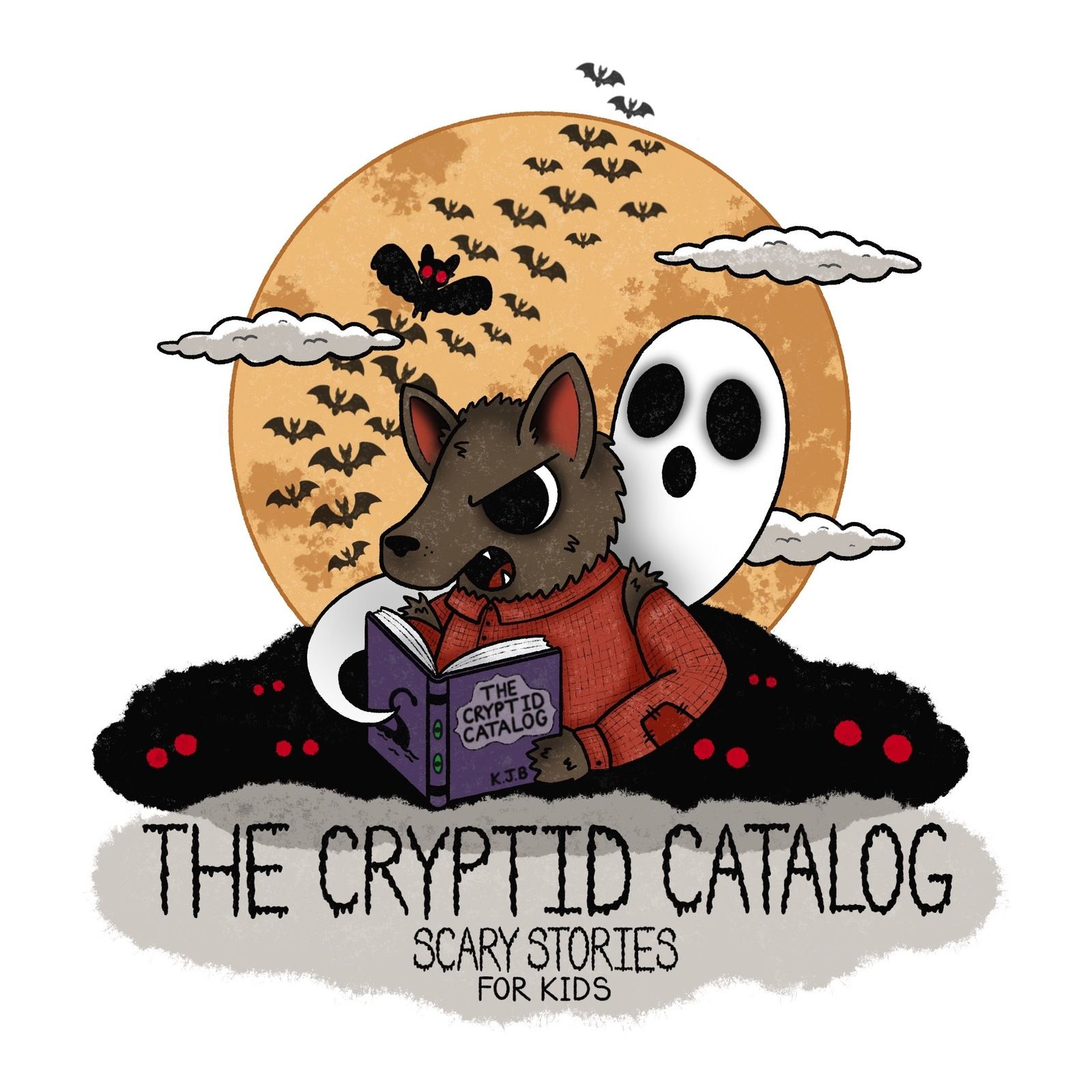
The Cryptid Catalog - Scary Stories for Kids
The Cryptid Catalog
LOL Storytime - Stories for Kids
Funny Stories for Kids
Snoop and Sniffy: Dog Detective Stories for Kids
GoKidGo: Great Stories for Kids
Stories Podcast: A Bedtime Show for Kids of All Ages
Starglow Media / Wondery
Greeking Out from National Geographic Kids
National Geographic Kids
Super Great Kids' Stories
Wardour Studios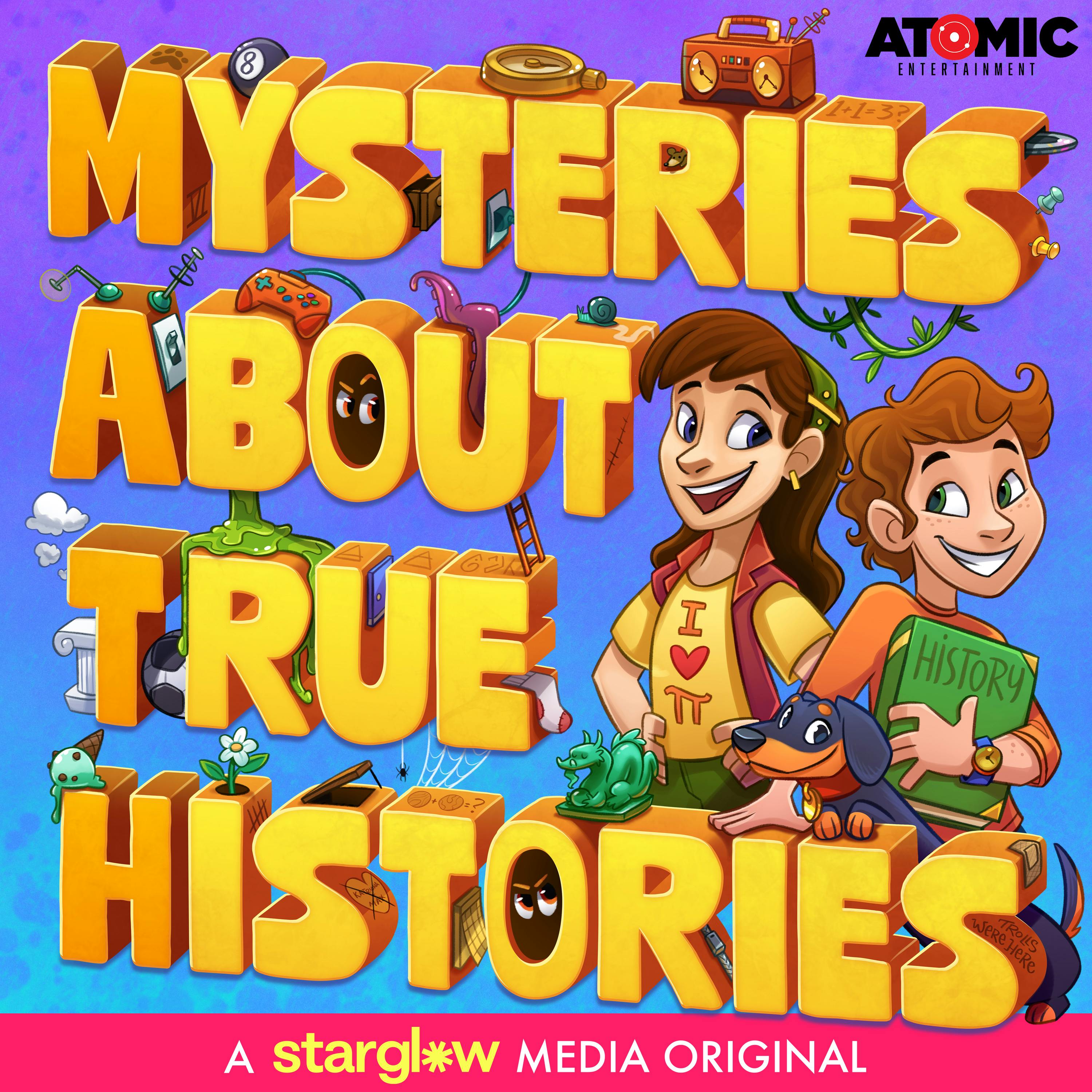
Mysteries About True Histories (M.A.T.H.)
Starglow Media / Atomic Entertainment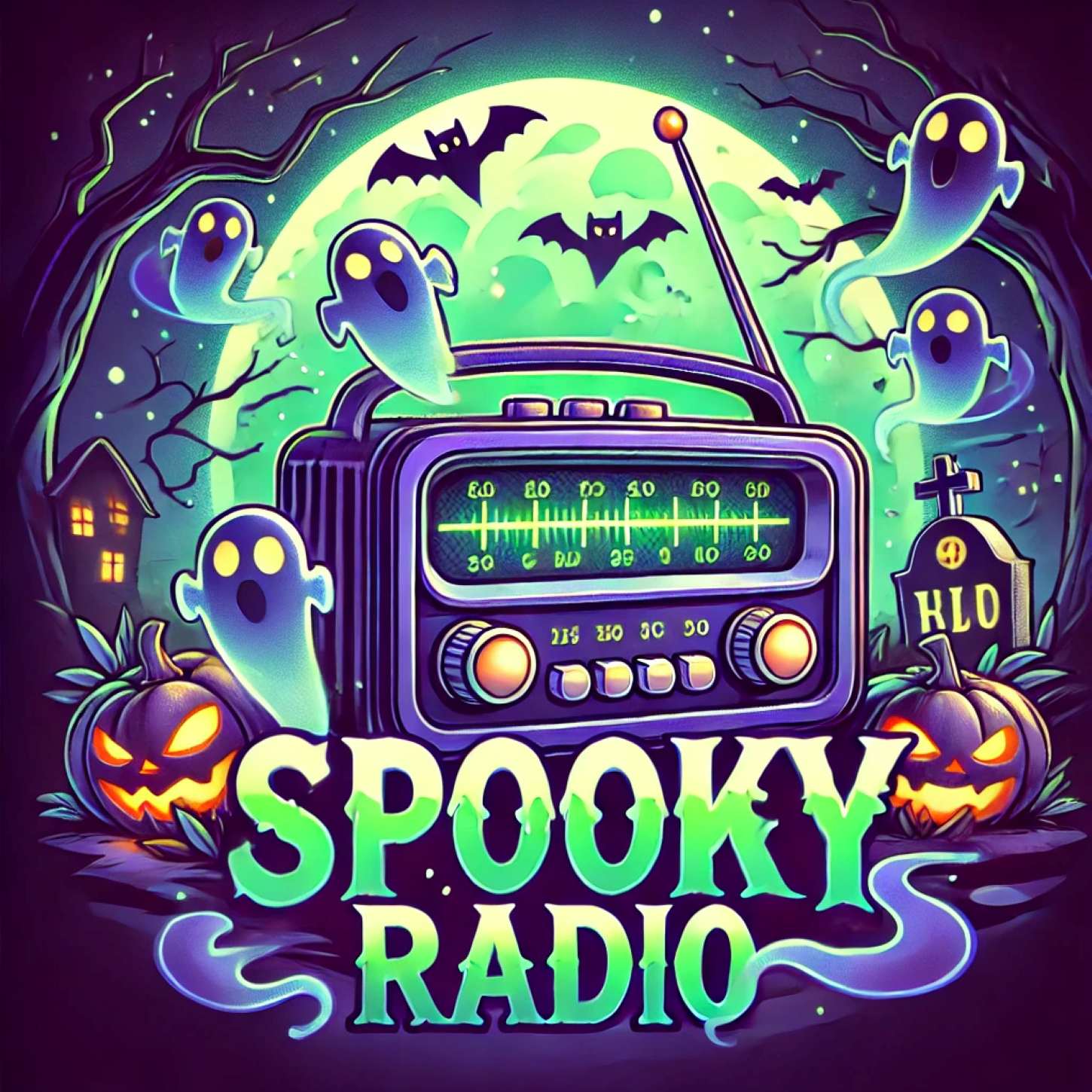
Spooky Radio : Spooky Stories for Brave Kids
spookyradio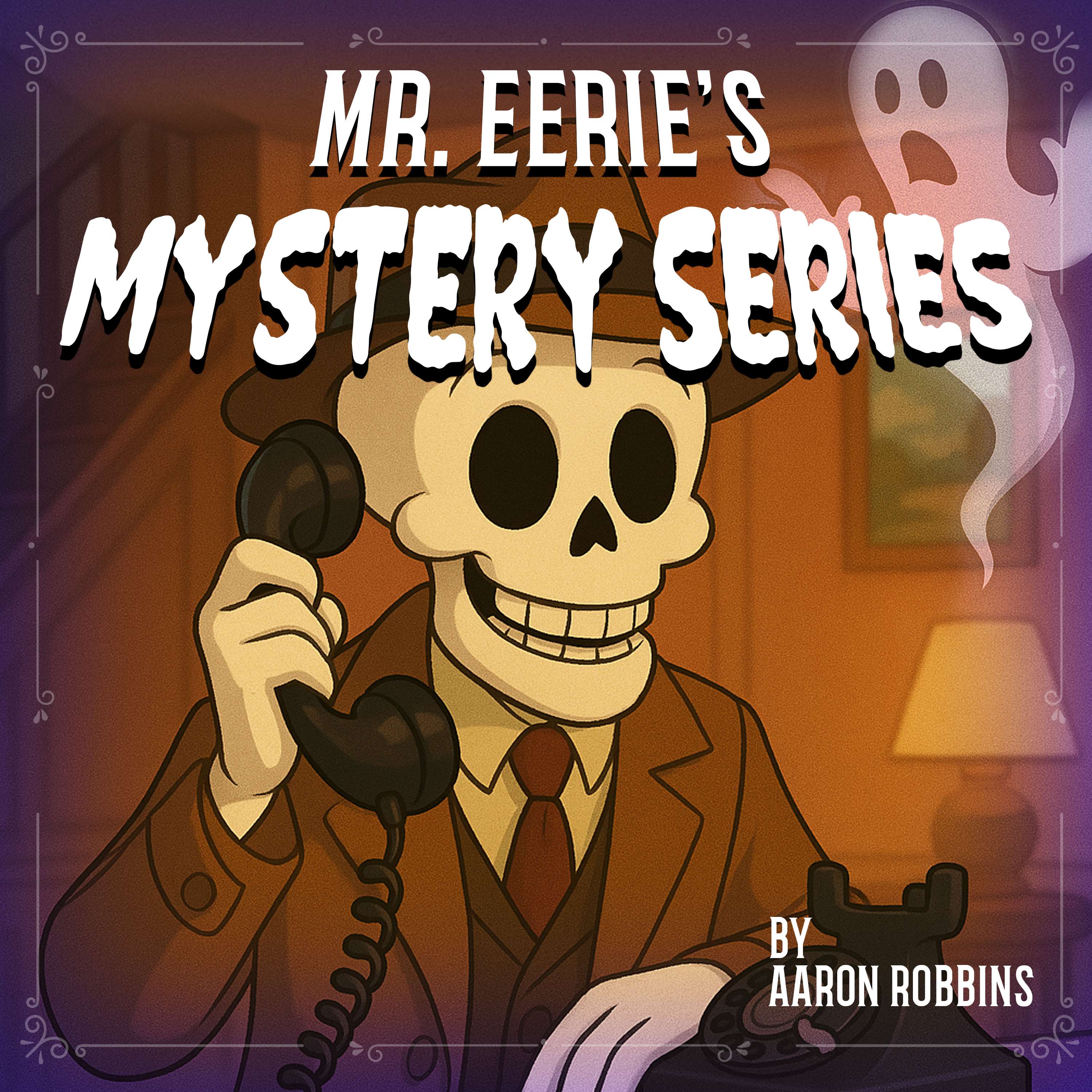
Mr. Eerie's Mystery Series
Spooky Stories for Kids
